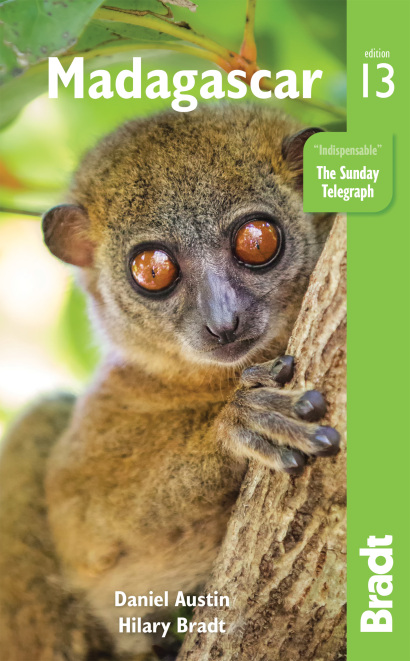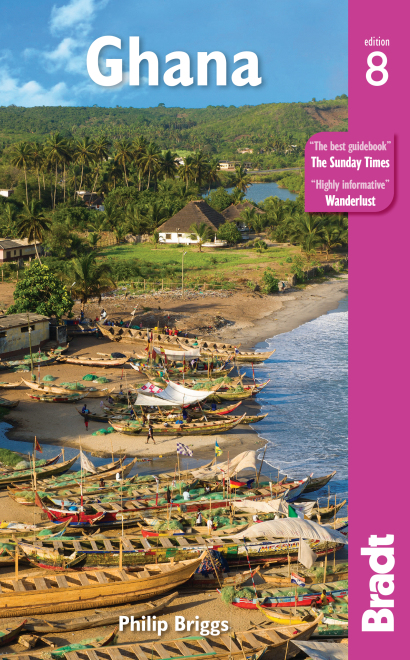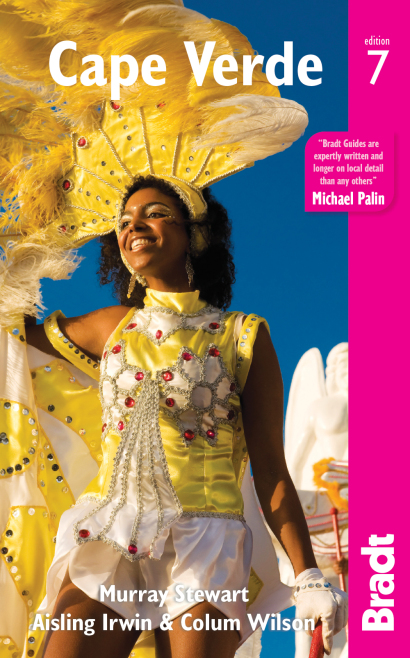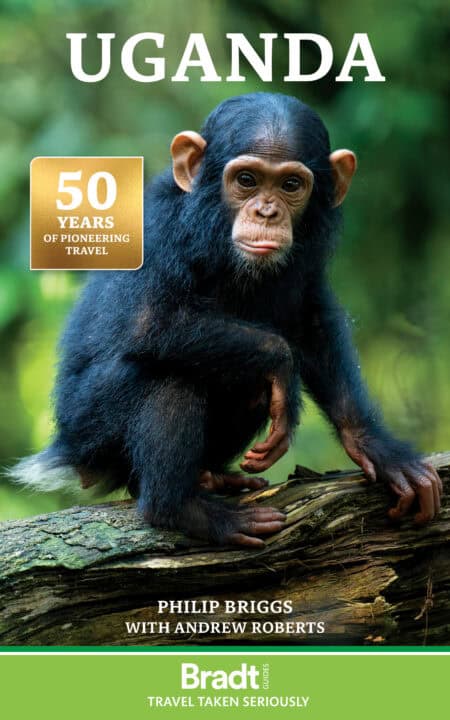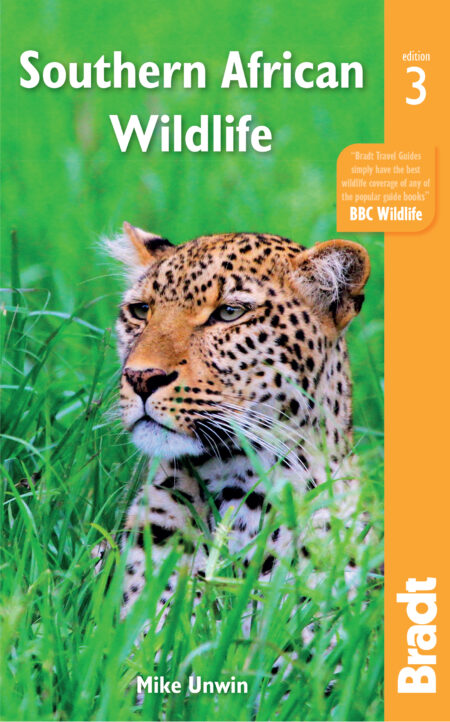Madagascar
by Hilary Bradt and Daniel Austin
£17.99
Madagascar Travel Guide – Holiday advice and travel tips including Antananarivo highlights, Malagasy wildlife and endemics, national parks, reserves and activities. Also featuring detailed species identification, the best spots for wildlife tracking, birdwatching, Nosy Be, Nosy Mangabe, Masoala, natural history, baobabs, local cuisine and hotels.
562 in stock
ISBN: 9781784776657
Published: 05th Nov 2020
Size: 135 X 216 mm
Edition: 13
Number of pages: 472
About this book
A new, thoroughly updated 13th edition of Bradt’s Madagascar, the leading and most comprehensive guide to this unique island nation, written by Hilary Bradt, who first visited in 1976 and has returned roughly 35 times, and Daniel Austin, who has visited more than 15 times and continues to travel there annually. Bradt’s Madagascar is by far the most thorough guide to the country in English and is written and updated by established experts whose unparalleled knowledge of Madagascar combines with contributions from over 50 specialists in a book which has been the most authoritative guide to the country for three decades. It covers national parks and protected areas and includes itineraries to suit all interests and budgets, plus details of around 1,000 hotels and restaurants.
Madagascar is like nowhere else on earth. It is fascinating not only zoologically and botanically, but culturally, linguistically, historically and geologically. This vast island is the fourth largest in the world and also the oldest, which partly explains why it has evolved into an incredible hotspot for biodiversity, with a truly unique flora and fauna that is more than 80% endemic to the island, and with new species being described virtually on a daily basis. Madagascar is also the only place where you can see wild lemurs. Almost a quarter of the world’s 450-or-so primates exist only here.
With Bradt’s Madagascar you can visit tropical rainforest and seek out its incredible flora and fauna; explore otherworldly eroded limestone spires, most famously at Tsingy de Bemaraha National Park – Madagascar’s most striking landscape; discover the beach-fringed islands around Nosy Be with their fabulous scuba diving, snorkelling, kayaking, whale-watching and fishing; and make the most of a host of adventuring and sporting possibilities, including surfing, windsurfing, kitesurfing, rock climbing, tree climbing, caving, river trips, mountain biking, distance running, quad biking and hiking. Also covered are the UNESCO World Heritage Site of Ambohimanga, the renowned Avenue des Baobabs, one of the country’s most photographed scenes, and information on the best birdwatching spots: Madagascar has almost 300 avian species, with a high proportion of endemics, including five whole endemic families.
About the Author
Daniel Austin’s fascination with Madagascar began long before he managed to muster the funds to go and see the island first-hand, on what he planned to be a once-in-a-lifetime trip before submitting to the inevitability of getting a ‘proper job’. Whether it was his aversion to such drudgery or the allure of Madagascar that was stronger than he expected isn’t certain – perhaps both – but the trip changed the course of his life and he has returned at least once every year ever since, often for three months at a time. Now occupied full time with all things Malagasy, he leads small-group tours to the island (www.danielaustin.co.uk), gives occasional lectures on Madagascar, is secretary of the London-based Anglo-Malagasy Society, founded the Madagascar Library (www.madagascar-library.com) and co-authored the other Bradt titles Madagascar Wildlife and Madagascar Highlights. www.danielaustin.co.uk
Hilary Bradt’s career as an occupational therapist ended when potential employers noticed that the time taken off for travel exceeded the periods of employment. With her former husband George, she self-published her first guidebook in 1974 during an extended journey through South America. As well as running Bradt Travel Guides, Hilary worked for 25 years as a tour leader in Madagascar. Her in-depth knowledge of the country has brought her lecture engagements at the Royal Geographical Society, the Smithsonian Institution and on board expedition cruise ships, as well as numerous commissions for travel articles. She received an MBE in 2008 for services to the travel industry, a Lifetime Achievement Award from the British Guild of Travel Writers in 2009, and a Travel Media Special Contribution award in 2019. She now lives in semi-retirement in Devon and is delighted to have handed over the hard graft of researching new editions to Daniel. www.hilarybradt.com
Reviews
‘Indispensable’
The Sunday Telegraph
‘An authoritative and scholarly
guide’
The Observer
A great travel book
Travel Africa magazine
Additional Information
Table of ContentsContents
Introduction
PART ONE GENERAL INFORMATION
Chapter 1 The Country
Geograph, Climate, A brief history, Government and politics, Economy
Chapter 2 People and Culture
Enigmatic origins, Beliefs and customs, Malagasy society, Ethnic groups, Language
Chapter 3 Natural History
Introduction, Geology, Flora, Fauna, Madagascar’s ecosystems, Conservation, Protected areas
Chapter 4 Practical Information
When to visit, Choosing a trip to suit you, Highlights and itineraries, Tour operators, Red tape, Getting there and away, What to take, Money, Getting around, Accommodation, Eating and drinking , Holidays and festivals, Shopping for souvenirs, Communications
Chapter 5 Health and Safety
Before you go, Specific health issues, Medical kit, Safety, Advice for specific types of traveller
Chapter 6 Madagascar and You
Responsible tourism, How you can help
PART TWO THE GUIDE
Chapter 7 Antananarivo and Area
History, Ivato Airport area, Antananarivo city, Day excursions from Tana, Overnight excursions
Chapter 8 East of Tana
Antananarivo-Côte Est Railway, Tana to Moramanga, Lake Alaotra, Moramanga to Andasibe, Andasibe area, Andasibe to Toamasina
Chapter 9 The Highlands South of Tana
Tana to Antsirabe, Antsirabe (PK 169) and around, Ambositra (PK 259) and around, Ambositra to Fianarantsoa, Ranomafana National Park and beyond, Fianarantsoa (PK 408) and around, Ambalavao (PK 465) and around, Andringitra Massif, Ambalavao to Ihosy
Chapter 10 The South
History, Ihosy to Ranohira, Isalo National Park, The Makay Massif, Ranohira to Toliara, Toliara (PK 926), Ifaty and Mangily, North of Ifaty, Anakao, South of Anakao, Toliara to Taolagnaro (Fort Dauphin), The far south, Mandrare Valley, Taolagnaro (Fort Dauphin)
Chapter 11 The West: Menabe Region
Morondava, South of Morondava, North of Morondava, Melaky region
Chapter 12 The North and Northwest
Antsiranana (Diego Suarez), Ramena and the east coast, Excursions west from Antsiranana, Montagne d’Ambre (Amber Mountain) National Park, Excursions south from Antsiranana, Ankarana Special Reserve, Continuing south on RN6, Fly-in luxury beach resorts, Mahajanga (Majunga), West of Mahajanga, RN4: Mahajanga to Antananarivo
Chapter 13 Nosy Be and Nearby Islands
History, Transport, Activities and excursions, Hell-Ville (Andoany), Ambatoloaka, Beach hotels and other accommodation, Islands around Nosy Be, Mitsio Islands (northeast of Nosy Be), Islands southwest of Nosy Be
Chapter 14 Toamasina to Masoala and the SAVA Region
History, Toamasina (Tamatave), Toamasina to Soanierana-Ivongo, Soanierana-Ivongo to Maroantsetra, Masoala Peninsula, SAVA region
Chapter 15 Île Sainte Marie (Nosy Boraha)
Île Sainte Marie (main island), Île aux Nattes (Nosy Nato)
Chapter 16 The East Coast between Toamasina and Taolagnaro
Pangalanes Canal, The east coast from Vatomandry to Mananjary, The east coast from Mananjary to Taolagnaro
Appendix 1 Historical Chronology
Appendix 2 The Malagasy Language
Appendix 3 Further Information
Index
